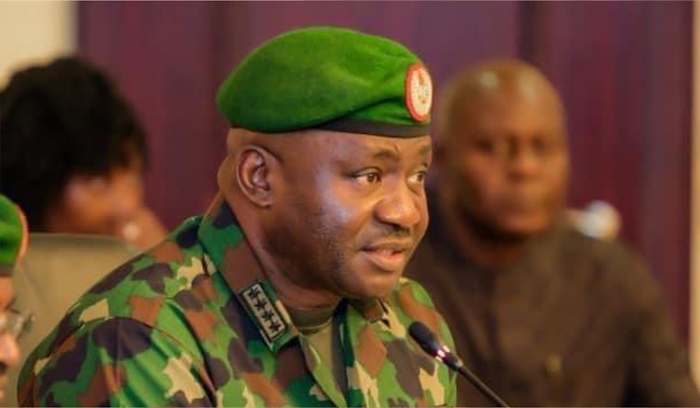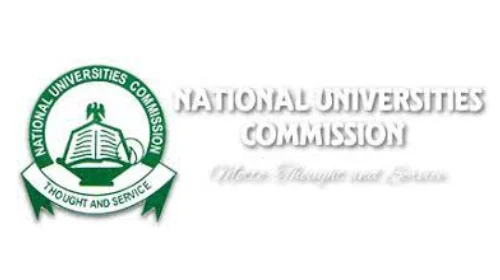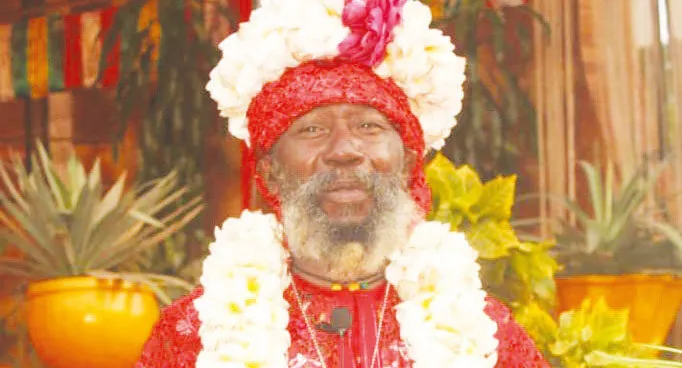News
NYSC @50: Stakeholders Assess Scheme, As Corps Members Make Demands

Activities to mark the 50th anniversary of the National Youth Service Corps, NYSC, gained momentum across Nigeria last week.
The frenzy online, on the streets and across cities evoked nostalgia, excitement and wistfulness as stakeholders (mostly generations of Nigerians who themselves had served in the past as corps members) reflected on the long-term impact of the scheme on Nigeria and its citizens.
NYSC, established on May 22, 1973, through Decree No. 24 by the administration of General Yakubu Gowon, has the overarching goal of fostering national unity and integration following the civil war that crippled the country from 1967 to 1970.
The war had prompted Nigeria to seek a permanent solution to discord among its ethnic components.
It was to this end that the military administration of General Yakubu Gowon, in pursuit of its “Three Rs” policy (of reconciliation, reconstruction, and rehabilitation), established NYSC as an organ of national unity.
In good and bad times, NYSC weathered the storm. On Monday, May 8, 2023, authorities of the NYSC formally commenced activities to mark the 50-year milestone of the institution.
The journey so far
Without being sentimental, NYSC has been an avenue for true service to the fatherland for young Nigerians.
Members of the corps (famously called corpers) spend 12 months contributing to the development of various sectors, most prominently the education and health sectors.
In its half-century existence, the scheme has continually reinvented itself to meet the demands of the day, with the most recent evolution being its Skills Acquisition and Entrepreneurship Department, SAED, which has been facilitating job creation for its teeming members.
Far from being a vestige of the past, NYSC, as an institution, offers young Nigerians a gateway to their future in a country of ethnic and religious pluralism where peaceful coexistence is paramount.
READ ALSO: NYSC @ 50: We Have Done Well In National Integration – Official
Stakeholders, who spoke to DAILY POST, commended the scheme for its efforts so far in uniting the country despite the perennial ethnic, political, and religious polarities that perpetuate divisions among Nigerians.
The respondents also spotlighted areas where NYSC could be strengthened as an institution.
According to the President of the Arewa Youth Consultative Forum (AYCF), Alhaji Yerima Shettima: “The intentions for the establishment of NYSC were good to an extent; we must acknowledge the fact that it has impacted positively on the lives of Nigerians.”
He underscored the role of NYSC in promoting unity as it provides opportunities for young Nigerians to leave the environment of their birth and upbringing and “go to where they have never imagined.”
Said he: “Intermarriage among corps members is also part of the reason for the establishment of the scheme. The aim was to unite the country so that we can see ourselves as one nation.”
In the same vein, the President General of the Coalition of South East Youth Leaders, COSEYL, Goodluck Ibem affirmed that the scheme had helped Nigerians to acquaint themselves with people of other languages and tribes, a development that fosters peace and harmony in the country.
He also credited the NYSC for fostering peace through inter-ethnic marriage among young Nigerians.
“The NYSC has improved intermarriage among our youths from different ethnic and religious backgrounds, which ordinarily would not have been impossible.
“But as corps members met and interacted during their service years, they discovered that what their political leaders told them about people of other tribes was not true but a lie,” he articulated.
Ibem enumerated other benefits of NYSC thus: “One, the scheme has helped our youths discover their talents and business opportunities in areas where they are posted for their primary assignments.
READ ALSO: NYSC, Veritable Tool To Build Strong, United Nation – Gov. Mohammed
“Two, NYSC helps our youths learn new languages and cultures of their fellow Nigerians, which ordinarily would have been impossible if not for the scheme. As they learn new languages and cultures, they understand better how to relate freely with their fellow countrymen and women.
“Three, the scheme has helped the advancement of education in rural areas where ordinary Nigerians wouldn’t have had the opportunity of access to education. This is possible as corps members, in the spirit of service to the fatherland, help to build schools and teaching centres. Their sacrifices establish trust and unity among Nigerians.”
Another respondent, Ademola Joshua, a youth leader in Ondo State, highlighted the area of weakness in the scheme.
According to him: “Most Nigerians served their country only during the one-year compulsory service; after the NYSC programme, the majority of Nigerians don’t have the opportunity to serve their nation again. This is bad.”
He continued: “The federal government should find a way to create jobs for these young Nigerians or extend the service beyond just one year and pay them well. How can you pay them N33,000 and expect them to save and start a business afterwards?
“Parents struggle to pay school fees for their children, and even during service, they still struggle to feed them, this is not correct.”
Expanding national assignment and growing concerns
The past few decades have seen the NYSC take on weighty responsibilities, especially with the return to democracy, whereby corpers have become pivotal to Nigeria’s electoral process.
In every electioneering season, corps members in their numbers serve as Presiding Officers (PO) and Assistant Presiding Officers (APO) at polling units.
For instance, not less than 200, 000 corpers were enlisted by the Independent National Electoral Commission (INEC) during the 2023 elections, constituting 75 percent of the election workers.
Similarly, they serve as part of the workforce of the National Population Commission (NPC) during census exercises.
READ ALSO: Flood Takes Over NPC, NYSC Premises, As Heavy Downpour Wrecks Havoc in Lagos
They are consequently exposed to the hazards of these assignments as witnessed during election periods when they are frequently targets of political violence.
In addition, the insecurity situation of the country has made the “service year” (the dream of graduating students) fraught with dangers.
In the past years, several corps members have paid the supreme price and fallen victims of bandits, insurgents, unknown gunmen, and other criminal elements wreaking havoc across the nation.
The disturbing development is giving patriotic young Nigerians and their parents grave concerns.
This concern was also shared by the AYCF president, who pointed out that the insecurity situation in the country is a discouraging factor for young Nigerians, who now worry about being posted to states affected by banditry or insurgency.
“I am optimistic that the security challenge will go away one day. And I commend the government; despite the security challenges, they never considered scrapping the scheme,” Yerima stated.
Speaking on the security of corps members, the Cross River State coordinator of NYSC, Zemoh Andrew Jebo told DAILY POST that the scheme does not post its members to volatile areas, especially during elections.
“There is a directive from the Director-General; we don’t post corps members to volatile areas,” he affirmed.
Finance side of the scheme
For serving corps members, the monthly stipend from the government is their mainstay while serving their fatherland, sometimes, in very demanding circumstances.
In 2002, corps members were paid N11, 000, and 21 years later, they are earning N33, 000, following the implementation of the national minimum wage by the Federal Government in 2020.
Owing to the current economic reality of the country, the allowance, however, can hardly sustain them for a month.
On this, all corps members are in agreement: There is a need for an immediate review of the monthly stipends.
READ ALSO: NYSC Tasks Police On Protection Of Corps Members At Orientation Camps
Galloping inflation, which translates into skyrocketing prices of food items and other essential commodities daily, renders their monthly stipend insufficient, from one payday to another.
The trio of Ochoche Maria, Jane Ugwu and Anthony Omoha, who are currently serving in the Federal Capital Territory, FCT Abuja, told DAILY POST in plain terms that their current allowance is “inadequate.”
According to them, they still rely on their parents for financial support.
“Life was better when we were in school. At least, people helped because they knew that, as students, we needed money; now, not everyone understands our situation- the N33,000 finishes in just a week. Transportation, food, rent, and everything else is just too expensive in Abuja,” Jane Ugwu complained.
She reflected solemnly: “When they started paying the N33,000, people were able to save from it because the economy was not that bad; now, N33,000 cannot feed one person for two weeks.”
Her condition, sadly, is representative of the generality of corpers.
As NYSC marks its milestone of 50 years, this is certainly an area of concern for all stakeholders.
There is, however, a ray of hope in this regard, arising from the declaration by Emmanuel Njoku, spokesperson of the National Salaries, Incomes, and Wages Commission (NSIWC), who on January 16, 2023, declared that the process of reviewing the national minimum wage will commence in the first quarter of 2023.
Such a positive development will definitely trickle down to corpers.
As Nigeria continues to deepen its nationhood, the NYSC remains an enduring symbol of the country’s unity, and a functional institution that is making valuable inputs to the corporate existence of Nigeria.
DAILY POST
News
Senate Confirms Ex-CDS Musa As Defence Minister After Five-hour Screening

The Senate on Wednesday confirmed the appointment of a former Chief of Defence Staff, Gen. Christopher Musa (retd.), as Nigeria’s new Minister of Defence following a rigorous five-hour screening by lawmakers.
During the confirmation hearing, Musa faced tough questions on recent security lapses, including the withdrawal of troops from Government Comprehensive Girls Secondary School, Maga, in Kebbi State, shortly before the abduction of schoolgirls on November 17.
The incident sparked national outrage.
Musa assured the Senate that he would immediately set up a full-scale investigation into the troop withdrawal once he assumes office.
He also vowed to probe the recent killing of a brigade commander in Borno State, Brigadier General Musa Uba, and other attacks targeting military officers.
READ ALSO:Senate Confirms New FCC Chairman, Approves 37 Commissioners
He said, “It is very unfortunate and really painful. I want to assure Nigerians that we will not stand by and have terrorists have the capacity to do such.
“We are going to go after them fully, working together with all the security agencies and Ministries, Departments and Agencies (of government). We are going to investigate fully.
“The Armed Forces have a way, and then from the defence, we are going to make sure that we continue with the oversight over their activities.”
The nominee highlighted gaps within the armed forces and called for enhanced funding, strengthened community engagement, and coordinated inter-agency operations.
READ ALSO:Senate Backs Death Penalty For Kidnappers, Informants, Others
He also emphasised the need to protect schools through the Safe Schools Initiative and a zero-tolerance approach to terrorism and banditry.
The screening session saw moments of tension in the chamber.
Senator Sani Musa (APC, Niger East) suggested Musa be allowed to “take a bow and go,” prompting protests from lawmakers, including Senator Garba Maidoki (PDP, Kebbi South).
Senate President, Godswill Akpabio, intervened, urging a thorough screening and noting that Nigerians and the international community were closely watching the process.
READ ALSO:Senate Recommends Death Penalty For Kidnappers
Musa, nominated on Tuesday by President Bola Tinubu following the resignation of Defence Minister, Badaru Mohammed, on health grounds, pledged to prioritise the protection of lives and national territory.
“I pledge to do my best to ensure that Nigeria is secure and safe.
“We need the support of everyone, every Nigerian, working together as a team, because it’s going to be a team effort.
“The enemies we are dealing with are evil forces that don’t mean well for this country and have no respect for human lives… If we don’t work together, we will allow them to perpetrate the evil acts they have been doing,” he said.
His confirmation comes amid heightened concerns over nationwide kidnappings, insurgency and mass abductions.
News
NUC Gets €3m Loan To Start ICT Projects In Varsities

This initiative, known as the Blueprint-ICT-Dev Project, aims to upgrade digital infrastructure, strengthen ICT capabilities, and promote digital literacy in these institutions.
The National Universities Commission says it has received €3m as the first tranche of the $40 million loan secured from the French Development Agency to support Information, Communication and Technology projects in 10 selected universities across the country.
Executive Secretary of the commission, Abdullahi Ribadu, announced this during the inaugural meeting of the 13th NUC Board on Wednesday at the commission’s headquarters in Abuja.
Ribadu noted that since he assumed office about a year ago, the commission has pushed forward initiatives centred on research, entrepreneurship, digital transformation and skills development across Nigerian universities.
“We have secured $40 million loan from the French Development Agency for the ICT Blueprint Project in 10 selected universities. We have strengthened – only yesterday, the director confirmed to me that the first tranche of €3m has been deposited in our CBN account to kick-start the process.
“We have strengthened internal financial management, expanded access to university education through the licensing of new private universities, and approved new programmes and units.
READ ALSO:Panic In Delta Female School Over False Herdsmen Attack
“We have also supported the take-off of publicly funded universities, expanded open and distance learning centres, and continued system-wide quality assurance exercises. Currently, the 2025 Accreditation Exercise is ongoing.
“These priorities continue to form the foundation of the Commission’s direction, and I am seeking your support in advancing them,” he said.
Ribadu assured the board of the commission’s full cooperation, saying the management stands ready to draw from the members’ expertise.
“We will rely on your wisdom to guide us as we carry out our duties. I am confident that your collective experience will strengthen the commission’s capacity to guide the Nigerian university system at a time when higher education continues to evolve.
“We also look forward to using your networks to help advance projects and partnerships that will benefit the Commission and the entire university system,” he added.
READ ALSO:NUC Begins Nationwide Recruitment, Opens Application Portal
On his part, Chairman of the 13th NUC Board, Emeritus Professor Oluremi Aina, thanked President Bola Tinubu for his sustained support for the university sector.
He said the board is assuming its mandate at a time of transition for higher education, with global standards rising and expectations increasing.
Aina outlined five central pillars that will guide the Board’s work, covering performance evaluation, improved university rankings, digital literacy, research and institutional reforms.
He said, “As we settle into this assignment, but permit me to present what I call five pillars that I believe will help guide our stewardship. One, evaluation of NUC performance.
“We must examine in detail the Act that buffered and laid the foundation for the NUC. We also need to be conversant with the various amendments to the act, its vision and mission, guiding principles and ethics.
READ ALSO:ABU Makes Clarifications On Alleged Production Of Nuclear Weapons
“Then we must study the commission’s operational challenges and landmark achievements. Going forward, we should compare ourselves against global standards, not sentiments, not history, and where we fall short, how we fall short, and why we must adjust boldly. Two, aligning with the renewed hope agenda of the present administration, the president has made education a pillar of national rebirth with the establishment of the fund and other initiatives.
“The signal sent to the world is that Nigeria is ready to reset and rebuild. Through our assignment, we must lead other key stakeholders in the higher education sector. In pragmatically resolving the naughty and nagging agitation of the academic staff union and other university unions.
“Advancements must also be made to enhance digital literacy and especially the use of artificial intelligence, AI, as tools to strategically reposition the universities nationally and internationally. Overall, it will also be a priority for the 13th board to work with the management for radical improvements in both the global and webometric ranking of our universities.”
He added, “Three, identifying and dismantling obstacles to university quality. Governance deficiencies, fund constraints, research stagnation, et cetera, must no longer be accepted as normal. Our duty is to reform and make progress, not to manage decline.
READ ALSO:Nine Countries With Nuclear Weapons In The World
“Four, reviewing existing funding and exploring new channels for sustainable funding. Nigerian universities cannot thrive on ingenuity alone. The board must intensify the research for alternative funding sources. Strengthen utilisation and explore emerging and local opportunities.
“And five, investing in the welfare and capacity of NUC staff and regulatory infrastructure. The system cannot overperform its operators. Credible accreditation and monitoring require strengthened conditions of service and protected regulatory independence.”
Aina added that the board would fully leverage technology in its operations.
“We will seek to leverage technology to ease our burden through the adoption of digital platforms for the advancement of our collective objectives. And I have a charge for the board.
READ ALSO:US Says Strikes ‘Devastated’ Iran’s Nuclear Program
“This board, in whom I am well-pleased, carries with it the weight of expectations and aspirations of the Nigerian people,” he said.
Earlier this year, the French Development Agency provided a €38 million credit facility to the National Universities Commission to support the digital transformation of 10 federal universities in Nigeria.
This initiative, known as the Blueprint-ICT-Dev Project, aims to upgrade digital infrastructure, strengthen ICT capabilities, and promote digital literacy in these institutions.
News
Satguru Maharaj Pledges To Facilitates Kanu Release If…

The founder of One Love Family, Satguru Maharaj Ji, has vowed to get the incarcerated leader of the proscribed Igbo group, Indigenous People of Biafra, Nnamdi Kanu, released if the Biafra radio and sit-at-home order are stopped.
Maharaj Ji stated this while speaking in an interview granted to his temple’s in-house radio on Wednesday.
According to him, the IPOB leader was culpable of the terrorism charges levelled against him, and anyone guilty is liable to a death sentence.
He said, “We are, however, grateful that the matter has been put on hold in the sense that, by the accusations, it is always going to be death, looking at the level of crimes attached to him, with the way and manner the constitution is written. Anybody who is accused of doing such a thing (terrorism) is sentenced to death. It is only out of grace that Kanu was able to escape.
READ ALSO:Court Threatens To Foreclose Kanu If He Fails To Open Defence
“So now it has to be by political settlement before he (Kanu) can be released, and it will be addressed in so many ways. For anyone advocating for his pardon, they have to take positive steps. In other words, they must not do so with empty hands; they should stop the Biafra radio wherever it is. Secondly, the sit-at-home order should be stopped, and the judgment should be accepted while the Igbo elders go behind the scenes to analyse and explain to the President.
“Today, the Igbos have been brought to the central realms of politics by Tinubu. And the Northern caliphate is not happy about it. They are not excited about the commission they were given…They should stop the propaganda that the East is about to be Islamised. When those are done, I know how to watch it out, Kanu will come out. I will help facilitate his release.“
The cleric joined the likes of Abia State governor, Alex Otti, activist Omoyele Sowore, and other South-East leaders to intensify efforts to secure the release of detained Kanu through a political arrangement, assuring residents of the region that “all hope is not lost.”
On Tuesday, Otti met Tinubu at the State House, Abuja, after visiting Kanu in the Sokoto prison facility, where the IPOB leader is serving his sentence.
READ ALSO:Nnamdi Kanu Files Fresh Motion, Asks Court To Strike Out All Charges
Otti’s meeting with the President is believed to be part of ongoing engagements aimed at securing the release of the detained Kanu.
Recall that Kanu bagged a life sentence instead of the death penalty after the presiding judge, Justice James Omotosho, handed down the sentence on counts one, two, four, five, and six.
The judge also handed Kanu a 20-year jail term on count three, with no option of fine, and a five-year jail term on count seven, with no option of fine.
Justice Omotosho delivered the judgment after convicting Kanu on all seven counts of terrorism offences.

 News2 days ago
News2 days agoBREAKING: Ex-CDS Musa meets Tinubu At Aso Villa

 News5 days ago
News5 days ago(VIDEO) Obasanjo To Tinubu: Why Are We Negotiating With Bandits?

 News4 days ago
News4 days agoInsecurity: What Sheikh Gumi Told Me After Visiting Bandits Hideouts — Obasanjo

 Politics4 days ago
Politics4 days agoTinubu Sends Ex-INEC Chair, Former Oyo First Lady, 30 Additional Ambassadorial Nominees To Senate

 News5 days ago
News5 days agoVIDEO: Jonathan Breaks Silence On Guinea-Bissau’s Military Takeover

 Entertainment4 days ago
Entertainment4 days agoOrganizers Cancel Burna Boy’s US Shows After Fans Refused To Buy Tickets

 News4 days ago
News4 days agoFULL LIST: Wike revokes land belonging to Ilorin Emir, Lamido, Fayose, Iyabo Obasanjo, Others In Abuja

 News3 days ago
News3 days agoMOWAA: Why I Will Not Appear Before Edo Assembly Panel — Obaseki

 Headline4 days ago
Headline4 days agoUS: Four Killed, 10 Others Wounded In California Shooting

 Metro4 days ago
Metro4 days agoArmy, Air Force Crush ISWAP Fighters After Failed Chibok Attack




















